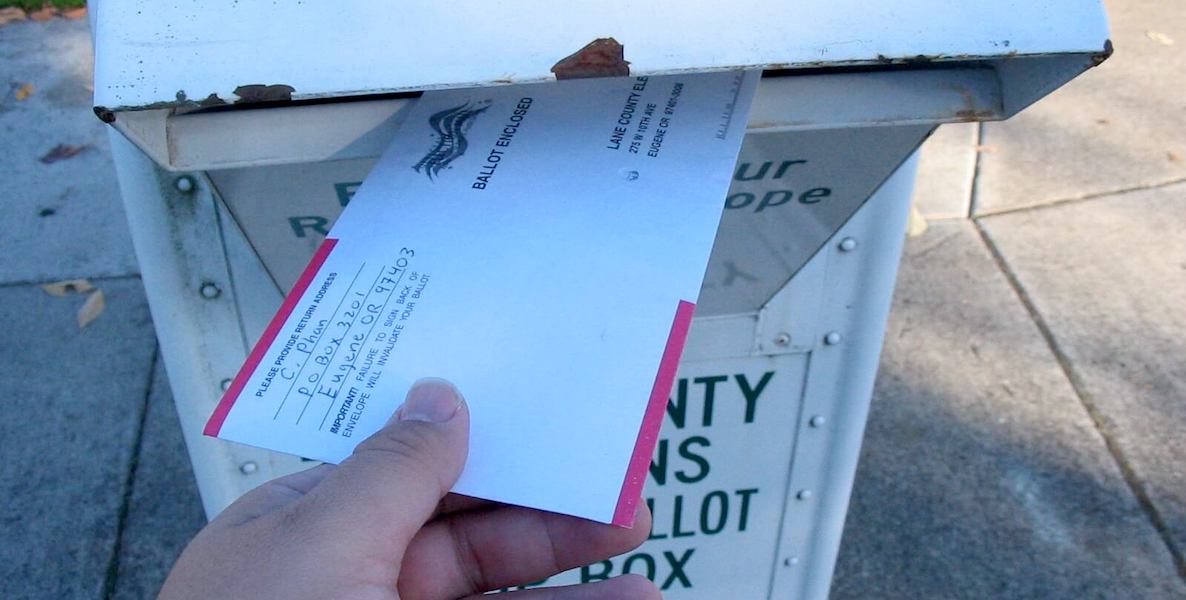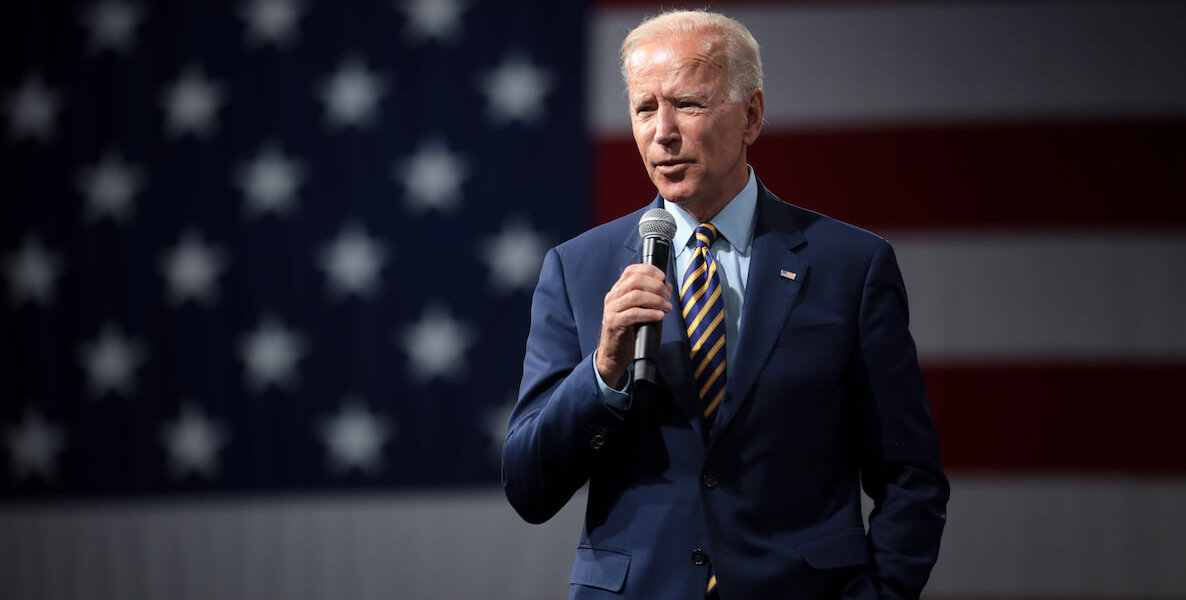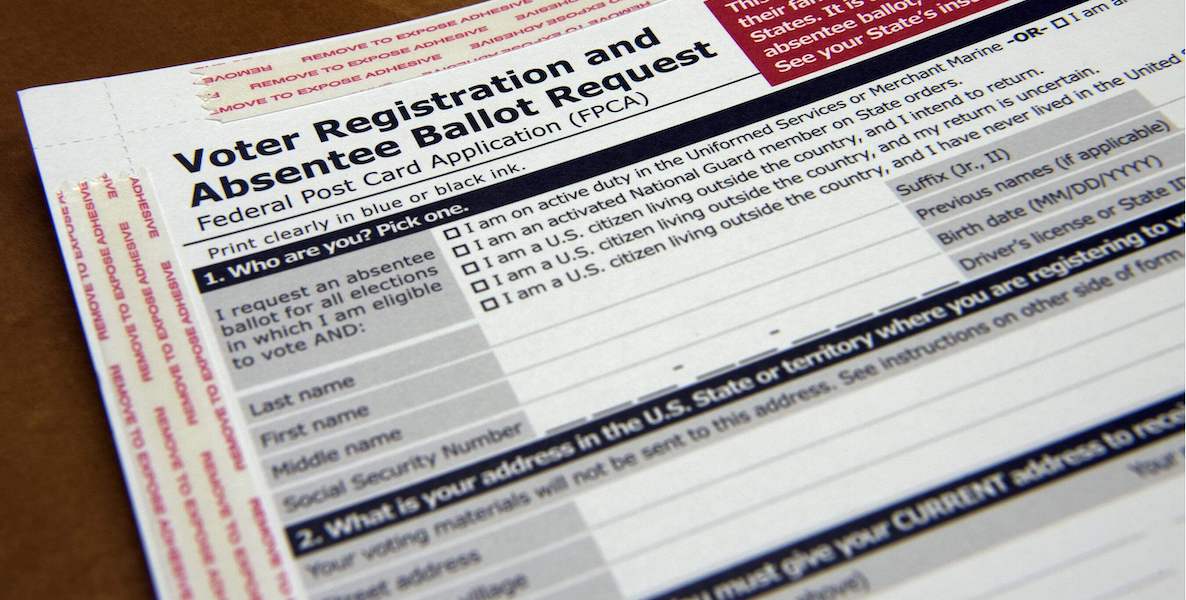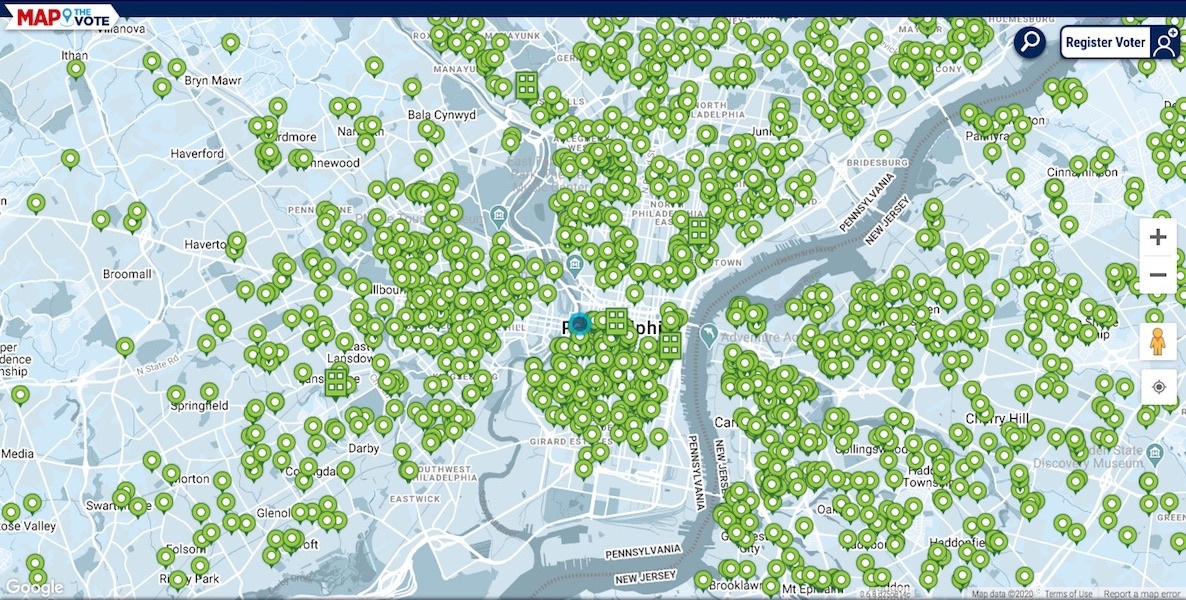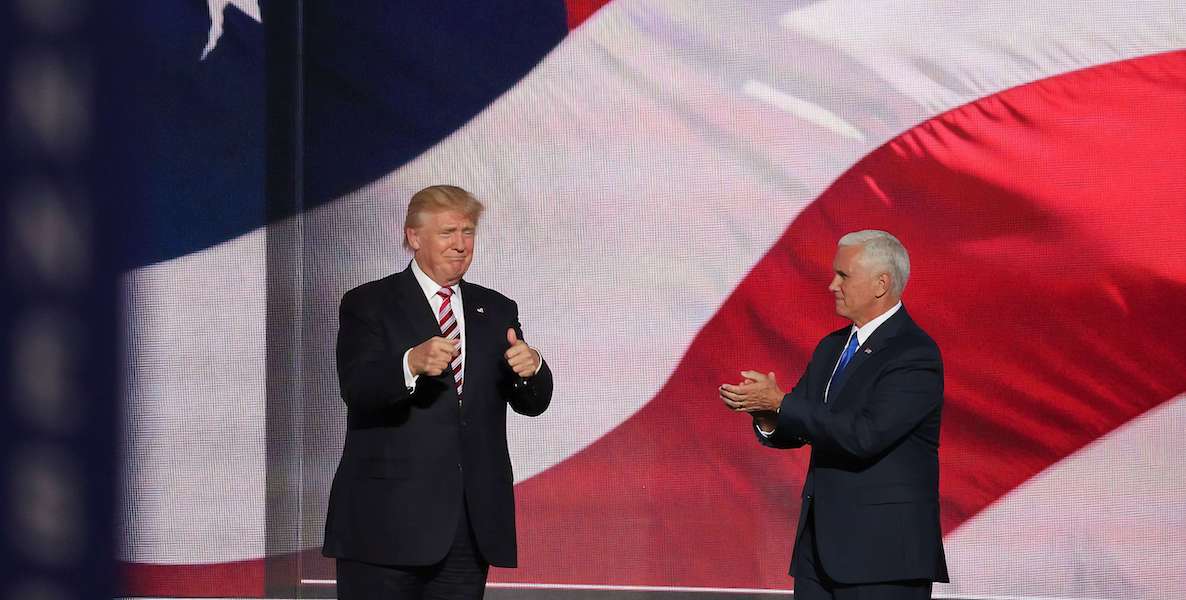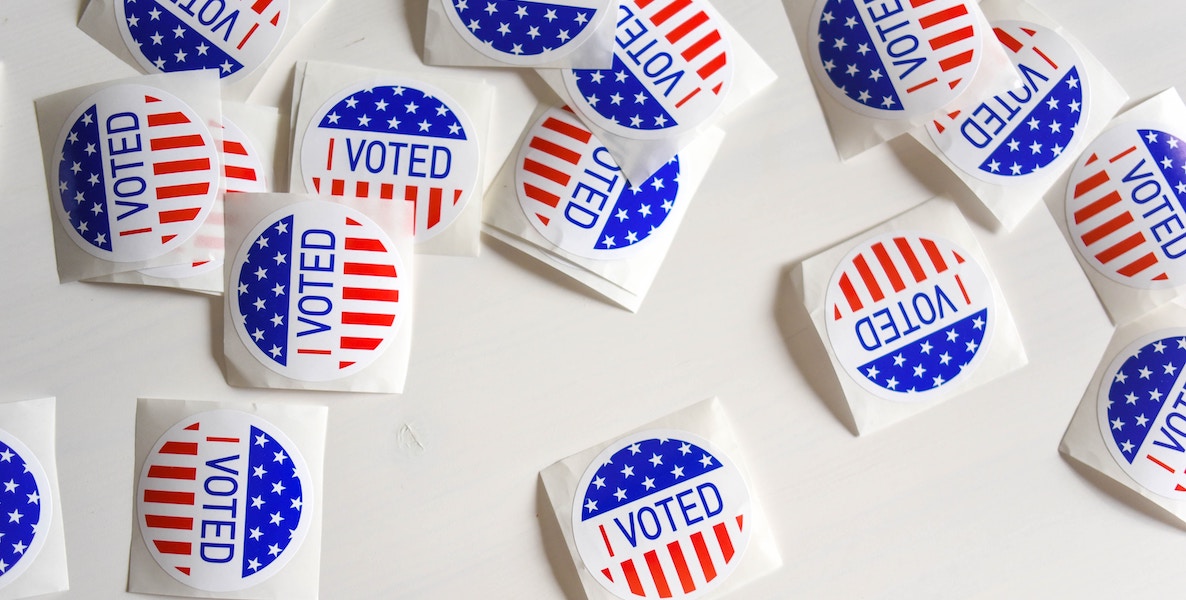![]() As coronavirus infections rise and more than a quarter of the national population is in some form of “stay-at-home” lockdown, state governments are operating in a perpetually frantic state of emergency.
As coronavirus infections rise and more than a quarter of the national population is in some form of “stay-at-home” lockdown, state governments are operating in a perpetually frantic state of emergency.
That’s for good reason: There is desperate need for leadership to contain infections, prevent an unstoppable tsunami of hospitalizations and keep state economies from going into freefall.
In that context, emergency decisions to postpone upcoming primary elections—as is the case with eight states, including Pennsylvania—may seem practical. And, indeed, it’s easier for Gov. Tom Wolf since he was just reelected to a second and final term in 2018.
![]() Yet, Wolf—being a Democratic governor in a state capitol dominated by Republicans—should be the most sensitive to how consequential Pennsylvania is as a presidential battleground state in 2020.
Yet, Wolf—being a Democratic governor in a state capitol dominated by Republicans—should be the most sensitive to how consequential Pennsylvania is as a presidential battleground state in 2020.
Conventional wisdom says the Democratic presidential primary is virtually over, but—so long as Sen. Bernie Sanders stays in the race—it’s still officially not.
Joe Biden is not yet the Democratic nominee for president. And while postponement of the PA primary into June may not upend Biden’s chances at ultimately winning the nomination, the delay means all attention is now focused on Pres. Trump, who currently trails Biden among registered voters nationally by just three points, according to a Monmouth University poll from Tuesday. That’s within the margin of error, so that means Pennsylvania is still very much a toss-up.
As Philly-based Democratic strategist J.J. Balaban told the New York Times this week, that signals a real danger to Biden’s chances of winning in November. “This idea apparently being floated by the Sanders campaign that Bernie can stay in the race and accumulate delegates without harming Biden’s chances of winning in November is delusional,” Balaban told the Times.
Already, Pres. Trump has a head start on raising money, rallying supporters and keeping the media gaze on him. The longer Democrats battle among each other, the greater the chance of dampening turnout that led to Democrats ultimately losing states like the Keystone in 2016.
Pennsylvania is too big and crucial of a state for its leadership to make a decision![]() like that and then leave things to chance. There is growing concern, particularly among African Americans accustomed to such tactics, that coronavirus could be used as a new and much more effective voter suppression tool in 2020. If primaries can be postponed, what’s stopping a much more extreme measure to cancel the entire 2020 election altogether?
like that and then leave things to chance. There is growing concern, particularly among African Americans accustomed to such tactics, that coronavirus could be used as a new and much more effective voter suppression tool in 2020. If primaries can be postponed, what’s stopping a much more extreme measure to cancel the entire 2020 election altogether?
“The spread of the coronavirus has exposed core weaknesses in American government,” notes the Brennan Center for Justice in its recent research on COVID-19 election concerns. “Our election systems are unprepared. Our checks and balances on executive overreach are broken …This disease will test our democracy. But it doesn’t have to undermine it.”
“This disease will test our democracy. But it doesn’t have to undermine it,” notes the Brennan Center for Justice.
Pennsylvania could have stepped up and become a national leader on how to keep elections flowing by keeping its primary on April 28, with proper accommodations for the virus.
Pennsylvania’s primary was supposed to have acted as a real test before 2020’s general election, a way to ensure hard-to-reach, untapped and dispirited voting populations didn’t repeat that same lackluster performance in 2016.
Now, the state must perform for the June 2 election, and sustain it for November. That will require immediate statewide planning for an all-out “voting options” movement, in which added emphasis is placed on a hybrid of “distance voting” measures and “micro precincts.”
Distance voting means universal all mail-in balloting, something possible under Pennsylvania’s new voting reforms, which made no-excuse mail ballots the law of the land. As the law states, when “you aren’t an absentee voter, you may apply for a mail-in ballot. You may simply request this ballot without a reason.”
Now is the time to expand and streamline that. The challenge is just making sure everyone understands what that is and the corresponding deadlines. Given the current circumstances, now is the time to instruct all registered voters to follow the mail-in option instructions at VotesPA.com/ApplyMailBallot.
At the moment, it’s as simple as filling out an application (online if you have a PA license or Penn Dot ID; via snail mail if not) to get a ballot from the state, and Step 2) between now and May 18th filling that ballot out and mailing it in.
Grassroots organizations, from community groups to civic associations and churches with expertise in reaching all types of audiences, should be assisting in this effort. Why May 18? That date ensures everyone is properly postmarking, getting enough time to mail and not missing the June 2 deadline to process all ballots.
Interestingly enough, critics suggest—some quite lazily—that it’s either not fully possible due to logistical concerns or due to common voting patterns and norms among different demographic groups. “Going to all-mail voting is not flipping a switch. It is a very complex administrative, technological change,” Center for Election Innovation and Research Director David Becker told the Philadelphia Inquirer recently. “You’re going to end up really regretting it.”
Leadership Conference for Civil Rights President and CEO Vanita Gupta warned against “a one size fits all” model. “Vote by mail alone isn’t enough,” she tweeted recently. “Twenty-six percent of Native Americans in Arizona don’t have a U.S. postal address. Some voters with disabilities and voters with language access needs rely on in-person voting to cast a ballot.”
These are valid points. But, then, do your job and fix it. If it’s operationally impossible, why exactly was it implemented in the first place? That sounds like a lack of will to me.
If primaries can be postponed, what’s stopping a much more extreme measure to cancel the entire 2020 election altogether?
Plus, there is evidence that mail-in voting actually increases turnout, as it did in Utah, where 21 of 29 counties switched to automatic mail-in voting and last year saw an increase in turnout of nearly nine percent.
Experts and organizers, along with elected officials, get paid to figure these sorts of dilemmas out … not to lament on cable TV or social media about how it can’t be done. Distance voting can only work with aggressive and ambitious, all-hands-on-deck messaging campaigns held statewide. Residents should be daily reminded and inundated with awareness PSAs, emails and media segments on radio and TV.
We should be treating this election cycle with the same urgency as we’re treating the current crisis. Because it is interesting that elected officials want everyone to follow the same “stay-at-home” instructions and have that baked into the American mindset for untold weeks and months. But, in asking voters to follow a model of instructions for this, there is a mountain of excuses.
The second voting option is micro precincts, which is merely a reliance on limited polling places on June 2 out of an abundance of caution since the virus will likely still be a reality. This ensures access to those who haven’t voted by mail, for whatever reason, or those seniors or disabled who need assistance.
Since it’s reasonable to assume coronavirus will still be a public health hazard in June (but, hopefully, more contained), a micro precinct is staffed by a mix of polling officials with public health practitioners and public safety auxiliary to ensure all voters are practicing social distance and hygiene protocols.
These sites would operate similar to some grocery stores in places with high infection rates: Only a certain number of people are allowed in the building at a time, and those standing outside must practice regular social distancing. All sites would be equipped with hand sanitizer dispensers and wipes.
Greater Mount Vernon Baptist Church’s Rev J. Anyabwile Bankole believes safe and sanitary polling sites are not just conjecture, they are actually very possible.
“I [went] to two separate grocery stores this week. One store had customers line up outside approximately six feet apart,” he told Reality Check on WURD. “Upon entering the store every customer was offered access to hand sanitizer. And each shopping cart or basket was sanitized for them by a store employee. In addition, only a certain number of customers were allowed into the store at a time. As one customer came out one was let in.”
Lastly, this would be a good opportunity for state officials to implement an ambitious “Youth Polling Workforce” initiative to reduce the disproportionate number of coronavirus-vulnerable seniors working at polling sites.
![]() It’s true: over two-thirds of polling site workers are age 60 or older, something that’s not only triggered heightened concerns from the public about exposing these workers who are already in high-risk groups, but has prompted state officials to postpone primaries. To solve that, Pennsylvania should encourage local jurisdictions to hire Gen Z- and millennial-age polling precinct employees, which could also be a way to substantially increase youth voter participation.
It’s true: over two-thirds of polling site workers are age 60 or older, something that’s not only triggered heightened concerns from the public about exposing these workers who are already in high-risk groups, but has prompted state officials to postpone primaries. To solve that, Pennsylvania should encourage local jurisdictions to hire Gen Z- and millennial-age polling precinct employees, which could also be a way to substantially increase youth voter participation.
“We find ourselves in a moment where we’re trying to safeguard our democracy while safeguarding our health. There shouldn’t be a trade-off between the two,” Maxim Thorne of the Andrew Goodman Foundation recently warned during a virtual press conference on the organization’s efforts to combat voter suppression amid coronavirus. “Bad actors are out there using this moment to effectuate voter suppression schemes.”
Let’s hope Pennsylvania doesn’t get duped by those schemes. State and local officials can make certain the Commonwealth’s newly extended primary runs smoothly—and stays on track towards a successful multi-month distance voting habit that is uninterrupted into November.
Charles D. Ellison is executive producer and host of “Reality Check,” which airs 11 a.m. to 1 p.m. Monday through Thursday on WURD Radio (96.1FM/900AM). Check out The Citizen’s weekly segment on his show every Wednesday at noon. Ellison is also principal of B|E strategy. Catch him if you can @ellisonreport on Twitter.
Photo courtesy History in HD / Unsplash


